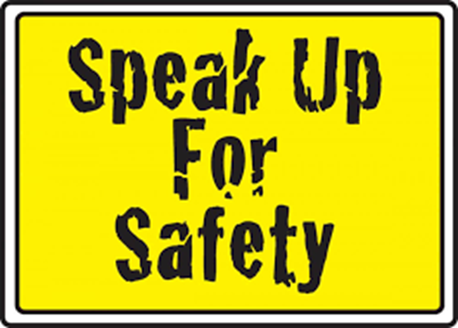1.4 Personal Campus Safety
Questions to consider:
- What makes a person safety conscious?
- How can you improve your personal safety?
- What are the safety procedures on campus?
Safety Consciousness
To be safety conscious means you have an awareness of potential hazards and an alertness to danger. Simply, you are conscious of being safe. This includes being smart about your physical surroundings and being careful with drug and alcohol use.
Personal Safety
For many students, their first year in college is also the first time they have lived away from home, or for commuting students, often the most time they have spent away from home. This new freedom can feel really exciting. College should be a time for fun, experimentation (in healthy ways), and growth. It’s important to be smart about your safety and conscious that you don’t put yourself in any high-risk situations. It’s also important to know what to do if any problems arise. Here are some ways to remain safe while enjoying your college experience:
Speak up
If you are worried about a friend’s well-being, ask them if they are OK. If you see inappropriate behavior, let someone know. Get a campus employee involved if someone looks like they are in trouble or an activity looks like it is leading to trouble. In general, speak up if you notice something going on that concerns you.

Protect your drink
A risk at bars and at college campus parties is the use of date-rape drugs to assist sexual assaults. Date-rape drugs often have no color, smell, or taste, so you can’t tell if you are being drugged. The drugs can make you weak and confused so you are unable to refuse sex or defend yourself. It is easy for anyone to slip a date-rape drug in your drink. Never leave your drink unattended, and never accept a drink from someone you do not trust.
Be alert and stay charged
Always be aware of the people in your surrounding area. Notice anyone who looks out of place and avoid dark and unpopulated areas. Make sure to charge your cell phone before you go out for the evening.
Avoid walking alone at night and don’t accept rides from strangers
Going out with a group is the best way to make sure everyone gets home safely. In the event you find yourself alone at the end of the night, know ahead of time what safety escort services your school offers. Or use services like Uber and Lyft, confirm the driver’s name and MAKE SURE you get in the car that matches the license plate on the app.
It’s also wise to install safety apps. These apps can automatically alert police and your emergency contacts in the event of an emergency. Always let your roommates and friends know your plans for the evening and when you expect to return.
Protect your belongings
Make sure to lock your vehicle. Never leave your items unattended, even for a few minutes.
Safety On Campus
The Alamo College District Police Officers are available 24/7/365 to assist you. They are certified Texas Peace Officers. For non-emergency assistance, call 210-485-0099. Please direct all emergencies to 210-485-0911. These numbers should be saved in your phone.
The Alamo Colleges District Police Department is responsible for:
- Emergency services
- Criminal investigations
- Traffic enforcements/investigations
- Providing courtesy safety escorts
- Crime prevention
- Responding to call(s) for service
- Non-emergency request(s)
- Parking management
- Lost and Found
- Courtesy service if car won’t start, locked out, flat tire, etc.
- Bike registration
While on campus, follow the Campus Safety Procedures that are outlined in Appendix 2.
If You Are a Victim of a Crime
Most college students report feeling safe on campus. College administrators are fully committed to making your campus experience as safe as possible. If you are attacked, it is important to know what to do:
- If possible, get to a safe place. Move to a well-lit area to call for help.
- Call 911 or have someone call 911 for you.
- Follow the operator’s instructions. 911 operators will instruct you until police or paramedics arrive.
- Contact a trusted friend or family member. You will want emotional support and also somewhere to go after all the official procedures are complete.
- Take time to heal. If you are a victim of crime or assault, it can be traumatic. The healing process will take time. Check with counselors in the Advocacy Center about how they can help in your recovery.
- Title IX. Under Title IX legislation, sexual harassment and sexual violence are forms of gender discrimination and are prohibited. This includes off-campus incidents or incidents that involve people who are not students. If you experience a hostile environment, sexual harassment, or sexual assault, schools have a responsibility to stop the discrimination, prevent its recurrence, and address its effects. Schools also have a responsibility to protect people who report sexual harassment or assault from retaliation from other students, school administrators or faculty. The Campus Cares office on campus can aid if you have experienced any of these situations.
Quick Quiz 1.4
- How can you keep yourself safe both on and off campus?
- What should you do if you are the victim of a crime?
Licenses and Attribution
CC Licensed Content
- College Success by Amy Baldwin is licensed CC BY. Access for free.
Images or Graphic Elements
- Images used by permission from Alamo Colleges District Department of Communications.

